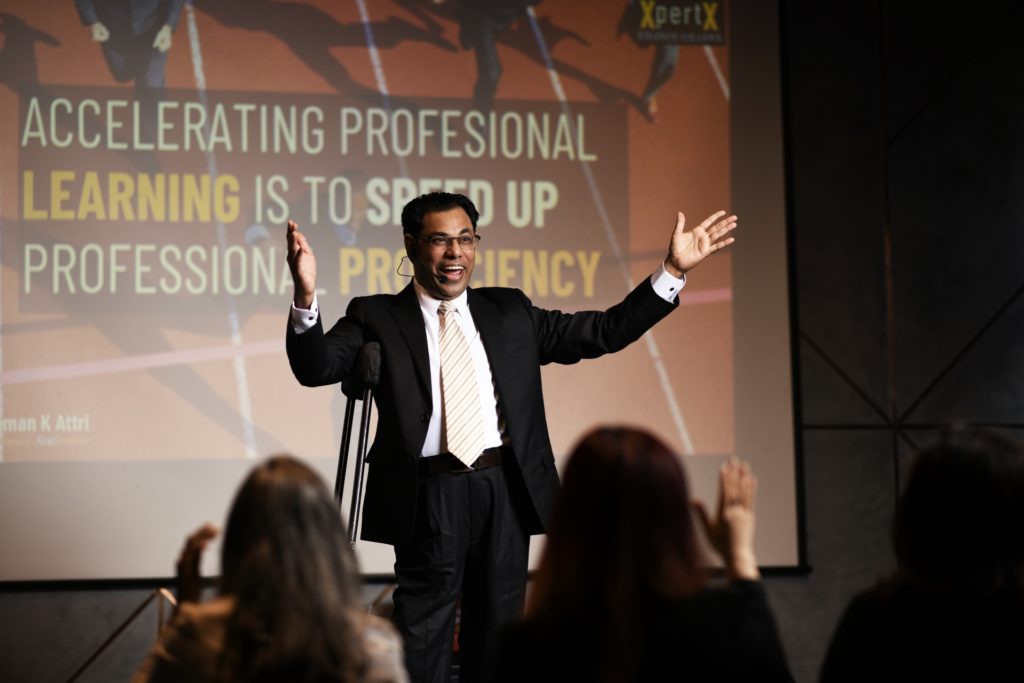Ditch the degree: 46% of graduates say start a business instead. But do business owners agree?
A new study has explored whether students, past and present, consider a degree to hold the prestige it once did in business – or whether entrepreneurial spirit can get you just as far. Or is there a happy medium? Freelancers, business owners and workplace scientists offer their say.
New research by comparison site NerdWallet has found that almost half of former university students would advise against pursuing a degree. Instead, for those with a great idea, they suggest launching their own business or at the very least, getting out into the workplace and gaining practical experience. But what if the startup folds? Does everyone need a degree to fall back on?

Revelations of the study come at a time when there are rumours that The Chancellor may lower the threshold when people start repaying their student loans, which could save the Treasury close to £2bn a year.
English and Welsh students who enrolled at university after 2012 pay nine per cent of everything they earn above £27,295 per year. They repay the same nine per cent until the loan is fully repaid or until 30 years after graduating.
But, according to an inews report, ministers have proposed cutting the threshold to as low as £23,000, and graduates would have 40 years as opposed to 30, to repay their debt.
For some, those student loan worries never came into the equation. Lee Marples, Founder and Strategic Director at Think3, shares his views on the value of a university degree in today’s workplace.
“I never got a degree and never wanted to get one,” Marples told The Freelance Informer.
“Experience outweighs qualifications all day long. Recruiting now, I’d rather bring someone with three years’ experience vs a graduate that has 3 years of theoretical teaching behind them. You only learn how to do the job, and do the job well, by actually doing it,” said the Derby-based brand agency owner.
“If a student is thinking of launching a business, why have a fallback option, make a success of it and learn in the real world. You can always fall back on the experience you have gained to secure employment elsewhere, if needed.”
Lee Marples, Founder of Think3
Marples said, depending on your chosen career, sometimes a degree is the only way to get to where you want to be. But he added you’ll be “racking up the debt in pursuit of a limited number of vacancies at the end of it.”
Two-thirds of think3’s co-founders never went to University. Marples said, “Instead [we] focused on gaining experience in the real world which has paid off for us.”
Management training programmes
But sometimes you need to go to university to get a bigger grasp of what career opportunities are out there.
Tony Bailey, Owner and CEO of Simply Hike, an outdoor gear and apparel online retailer, said he attended university to study management but left after one year to pursue a management training programme with a national company. That opportunity gave him on-the-job experience while learning at the same time.
“I worked my way up to Area Manager, an experience which gave me the knowledge to start my own business,” said Bailey.
“Now, as an employer of some very good apprentices, who have worked hard to progress within my company, I think the UK is in a great position to really help both scenarios, either University or on-the-job training,” he said.
Accelerated learning: what is it?

Learning is enhanced after deep experience, according to Performance Scientist, Dr Raman K Attri.
Attri is a performance and workplace scientist with a focus on accelerated learning. Attri, despite having two doctorates and two MBAs, believes that the university education system is still lacking in preparing students for the working world.
“My recommendation is to get stuck into a start-up or venture into a business first. When you have gained enough deep experience, only then supplement it with formal educational programmes alongside the business or profession you are involved in. In that way, the entire learning process becomes effortless and highly accelerated.
“I observed that most academic and university programmes are targeted at imparting education and knowledge. Very few of them are focused on actual workplace or business skills. Successful careers and innovative businesses now demand strategies, methods, skills, and well-rounded personalities.”
Learn, earn and get a degree at the same time?
There is also creditworthiness to consider. Repayment of a student loan is more forgiving if your income does not reach a certain level. Business loan lenders are not that forgiving. But what if you could learn, earn and get experience at the same time?
Peter Marples, a Director at equitable divorce accountancy and legal advisory, Fair Result, said that the vast majority of young people can achieve what they want in their careers without the need for a degree.
“The introduction of higher-level apprenticeships for most professions now means you can earn and learn and achieve the same qualifications with much more practical experience. Both the partners at Fair Result did exactly that – with one of us reaching partnership with KPMG before the age of 30 and having left school at 16 to pursue an apprenticeship,” said Marples of Fair Result.
“Also, with the spiralling cost of housing – just think – working from 16 – 25 with the disposable income in your pocket compared with £70k and more of debt means you could be on the housing ladder at 21 with a tidy deposit and, in our reckoning, more than £150k better off by the time you are 25 — after tax.
Peter Marples, Director at Fair Result
Just think of that and all the practical experience you have on your CV.
“Remember a first degree is often not considered enough these days with many staying for another year to do a Masters, which is yet more expense and debt and no real-life work experience,” he added.
Graphic designer freelancer, Ruth Bradford, owner of The Little Black & White Book Project, told The Freelance Informer that work experience can trump a degree.

“I have a BA(Hons) in graphic design but I don’t think I needed to do a degree. After working as a creative for 15 plus years in top advertising agencies, no one ever even asked me if I have one let alone what grade I got. I learned more on various work experience placements than I ever did at Uni, and although it was fun, racking up debt that hung over me for years wasn’t worth it.
“I could definitely have built a portfolio mixing college with training in the workplace. Now I am self-employed, I wish I’d jumped in with my own business when I was in my 20ss or even younger. Entrepreneurship skills are far more valuable than a piece of paper from a University in this massively oversaturated and over-qualified market.”
What did the study reveal?
NerdWallet’s survey revealed that 46% of graduates said those with entrepreneurial spirit should take out a business loan to start their own company instead of following the more traditional degree path.
A total of 41% of graduates don’t feel that taking a student loan in order to get a degree is worthwhile financially, with the majority saying it saddles you with too much debt. That said, 66% of current and former university students think a university degree increases earning potential.
Almost half (45%) of the graduates surveyed also said that they thought that a degree was “overvalued” and that more worth should be attached to other types of higher education and training.
In fact, 40% of graduates said that relevant experience was more valuable in a job application versus 25% who said that a degree would put you ahead.
“It appears that the perception of university and its value is changing,” said says Denise Ko Genovese, a personal finance expert at NerdWallet.
“There is such a strong entrepreneurial spirit in the UK, with many success stories and increasing support for those starting out, that it seems some people are questioning whether a degree will help if their ultimate goal is setting up a business.”
Denise Ko Genovese, a personal finance expert at NerdWallet.
Is startup financial support making people re-think degrees?
A total of 80 new businesses opened every hour in the first half of 2021, up 32% from the first half of 2019, according to research from small business lender iwoca, showing that there is a robust start-up culture in the UK.
Perhaps this is in part due to the increasing financial support available to first-time entrepreneurs – from business loans and start-up grants to advice and mentoring – that 55% of the graduates surveyed said that they would feel comfortable taking out a business loan to start their own business.
“Armed with more knowledge and confidence, we are hopefully all becoming more financially savvy and perhaps bolder in using the financial products available to us to help us reach our business and career goals,” said Ko Genovese.



 Big Shout Out to
Big Shout Out to